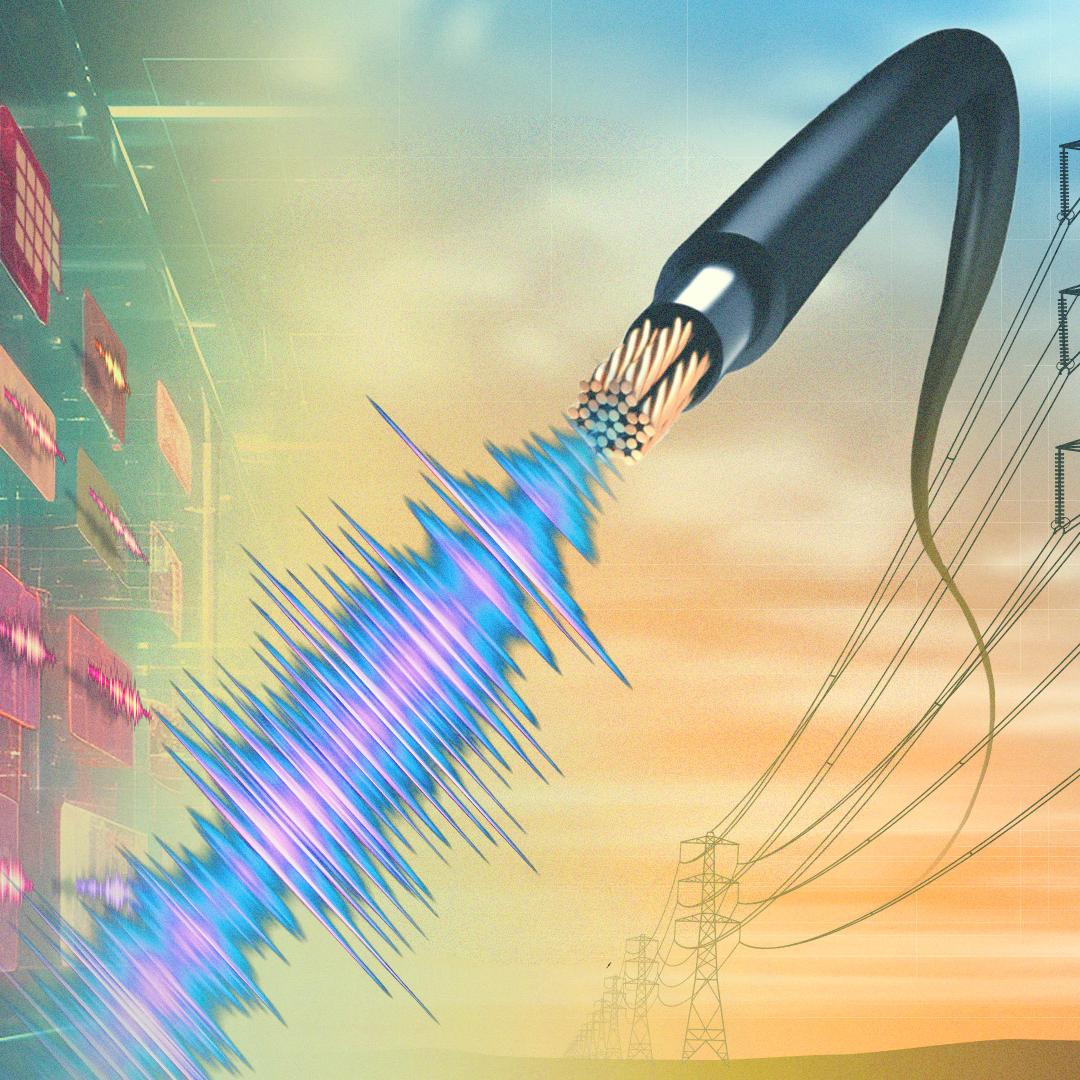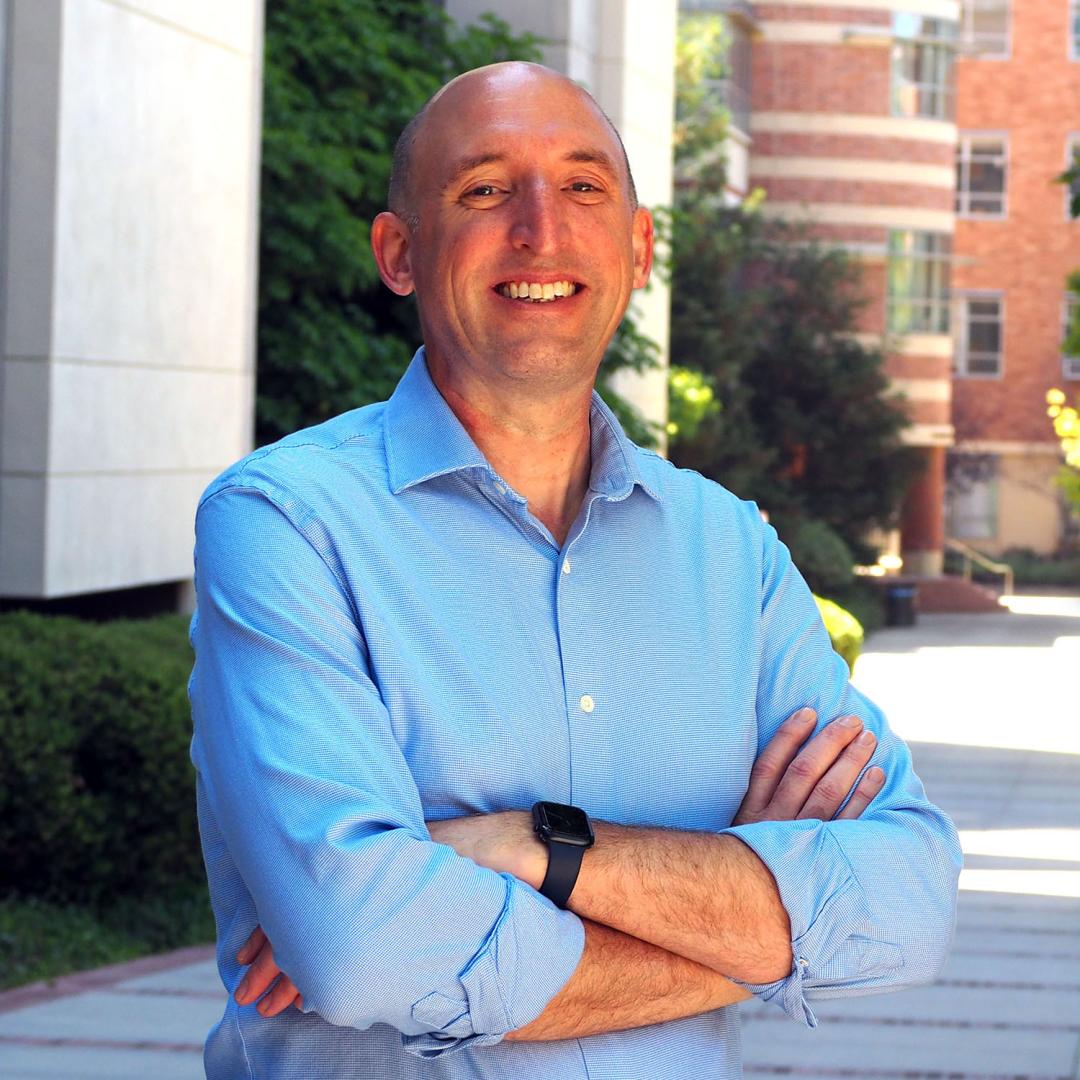
Filter News
Area of Research
- Advanced Manufacturing (2)
- Biology and Environment (74)
- Biology and Soft Matter (1)
- Clean Energy (41)
- Climate and Environmental Systems (1)
- Computational Biology (1)
- Computer Science (3)
- Electricity and Smart Grid (1)
- Functional Materials for Energy (1)
- Fusion and Fission (7)
- Isotopes (18)
- Materials (49)
- Materials Characterization (1)
- Materials for Computing (10)
- Materials Under Extremes (1)
- National Security (16)
- Neutron Science (22)
- Nuclear Science and Technology (5)
- Quantum information Science (2)
- Supercomputing (72)
News Type
News Topics
- (-) Artificial Intelligence (54)
- (-) Computer Science (99)
- (-) Environment (118)
- (-) Exascale Computing (27)
- (-) Isotopes (35)
- (-) Materials Science (65)
- (-) Mercury (7)
- 3-D Printing/Advanced Manufacturing (56)
- Advanced Reactors (13)
- Big Data (28)
- Bioenergy (57)
- Biology (65)
- Biomedical (32)
- Biotechnology (11)
- Buildings (24)
- Chemical Sciences (35)
- Clean Water (14)
- Climate Change (57)
- Composites (10)
- Coronavirus (21)
- Critical Materials (3)
- Cybersecurity (20)
- Decarbonization (49)
- Education (1)
- Emergency (2)
- Energy Storage (44)
- Fossil Energy (4)
- Frontier (27)
- Fusion (39)
- Grid (26)
- High-Performance Computing (55)
- Hydropower (5)
- Irradiation (1)
- ITER (3)
- Machine Learning (24)
- Materials (74)
- Mathematics (6)
- Microelectronics (2)
- Microscopy (28)
- Molten Salt (2)
- Nanotechnology (28)
- National Security (43)
- Net Zero (9)
- Neutron Science (59)
- Nuclear Energy (68)
- Partnerships (21)
- Physics (34)
- Polymers (13)
- Quantum Computing (22)
- Quantum Science (34)
- Renewable Energy (1)
- Security (14)
- Simulation (35)
- Software (1)
- Space Exploration (13)
- Statistics (1)
- Summit (32)
- Sustainable Energy (52)
- Transformational Challenge Reactor (4)
- Transportation (37)
Media Contacts
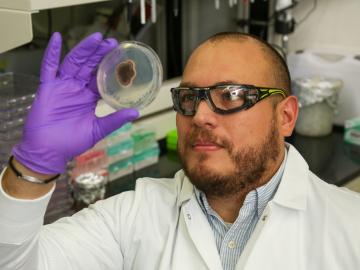
New computational framework speeds discovery of fungal metabolites, key to plant health and used in drug therapies and for other uses.

In summer 2023, ORNL's Prasanna Balaprakash was invited to speak at a roundtable discussion focused on the importance of academic artificial intelligence research and development hosted by the White House Office of Science and Technology Policy and the U.S. National Science Foundation.
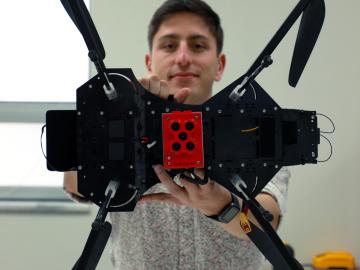
Jack Orebaugh, a forensic anthropology major at the University of Tennessee, Knoxville, has a big heart for families with missing loved ones. When someone disappears in an area of dense vegetation, search and recovery efforts can be difficult, especially when a missing person’s last location is unknown. Recognizing the agony of not knowing what happened to a family or friend, Orebaugh decided to use his internship at the Department of Energy’s Oak Ridge National Laboratory to find better ways to search for lost and deceased people using cameras and drones.
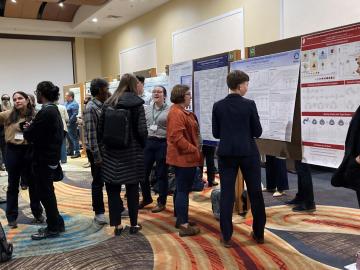
The 21st Symposium on Separation Science and Technology for Energy Applications, Oct. 23-26 at the Embassy Suites by Hilton West in Knoxville, attracted 109 researchers, including some from Austria and the Czech Republic. Besides attending many technical sessions, they had the opportunity to tour the Graphite Reactor, High Flux Isotope Reactor and both supercomputers at ORNL.
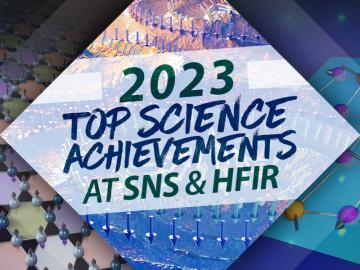
The 2023 top science achievements from HFIR and SNS feature a broad range of materials research published in high impact journals such as Nature and Advanced Materials.
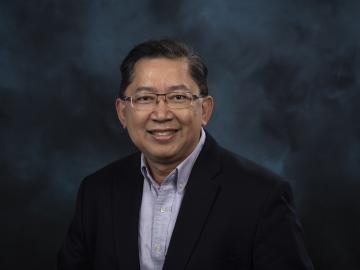
Rigoberto “Gobet” Advincula, a scientist at the Department of Energy’s Oak Ridge National Laboratory, has been named a 2023 Fellow of the National Academy of Inventors. Advincula has been recognized for his 14 patents and 21 published filings related to nanomaterials, smart coatings and films, solid-state device fabrication and chemical additives.

The U.S. Department of Energy’s Oak Ridge Leadership Computing Facility has informed the recipients of high-performance computing time through the SummitPLUS allocation program, which extends the operation of the Summit supercomputer through October 2024.
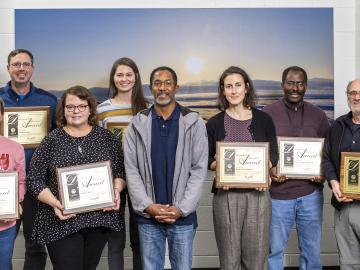
ORNL Environmental Sciences Division Director Eric Pierce presented the division’s 2023 Distinguished Achievement Awards at the organization’s December all-hands meeting.
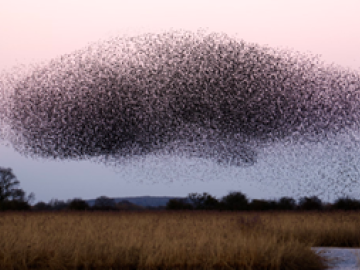
A team of researchers from the University of Southern California, the Renaissance Computing Institute at the University of North Carolina, and Oak Ridge, Lawrence Berkeley and Argonne National Laboratories have received a grant from the U.S. Department of Energy to develop the fundamentals of a computational platform that is fault tolerant, robust to various environmental conditions and adaptive to workloads and resource availability.
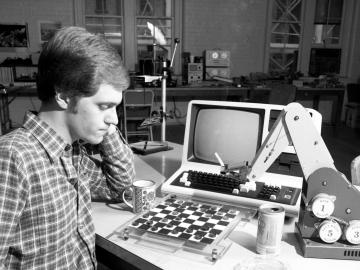
Despite its futuristic essence, artificial intelligence has a history that can be traced through several decades, and the ORNL has played a major role. From helping to drive fundamental and applied AI research from the field’s early days focused on expert systems, computer programs that rely on AI, to more recent developments in deep learning, a form of AI that enables machines to make evidence-based decisions, the lab’s AI research spans the spectrum.


